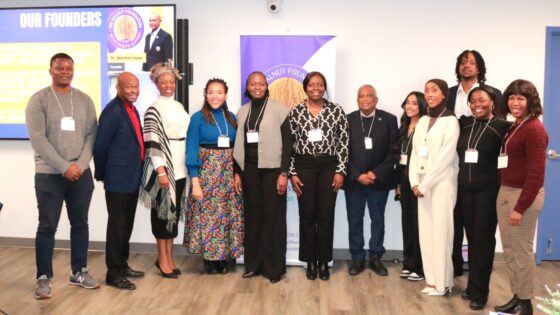on
BY PAUL JUNOR
As the COVID-19 crises continues to affect areas of modern life especially with respect to: health, economics, politics and science, information is being spread at an alarming rate. Scientific literacy is vital in our increasingly complex fast-paced world marked by technological innovations, digital revolutions and socio-political upheavals.
According to the Ontario Curriculum, Grades 1- 8 Science and Technology 2017 document states that, “Science is a way of knowing that seeks to describe and explain the natural and physical world, ” and “Technology is a way of knowing, and is also a process of exploration and experimentation.” Technology has applications with the diverse scientific fields as it seeks to solve real problems.
As scientists all over the world seek to understand the complexities and intricacies of the COVID-19 viruses, working feverishly to find a vaccine, there is so much information that is being spread. It is important that one possess scientific literacy in order to make sense of facts, figures and numbers that health officials and public authorities release daily.
The Grade 1- 8 Ontario document defines scientific literacy as, “The knowledge and understanding of scientific concepts for personal decision making, participation in civic and cultural affairs, and economic productivity. People who are scientifically literate can determine answers to questions about everyday experiences. They are able to describe, explain, and predict natural phenomena.” These knowledge, skills and habits of mind are indispensable for an informed citizenry.
As early as Grade five, students cover the Understanding Life System States that they are expected to. They, “learn to look at things from different points of view and not just accept them at face value, they will be become more skilled at making good and thoughtful decisions.”
In Grade 10 Academic Science, one of the specific expectations of the Biology strand is, “Describe public health strategies related to systems biology, and assess their impact on society.” (Ontario Curriculum, Grades 9 and 10 Science, 2008). In learning about public health strategies to prevent diseases they are exposed to information about: prevention, immunization, and health education programs. In Ontario: immunization, healthy lifestyles, education and screening services are part of public health strategies. These are preventive measures that students learn early in school.
In addition, they learn about the importance of immunization in saving lives worldwide. Children in Ontario do not have to worry about preventable diseases such as: polio, tetanus whooping cough, rubella, measles and bacterial meningitis because they have been vaccinated against them. Booster shots are often given to adults. The MMR (measles, mumps, rubella) vaccine is given to a child after one year old and close to 18 months. The issue of vaccination has both supporters and objectors and varied views are promoted.
In learning about viral diseases such as: AIDS, hepatitis, influenza, mumps, polio, as well as bacterial diseases such: staph, strep and tetanus, they gain a basic overview. It is in Grade 11 Academic and College Biology that students study bacteria, viruses and protozoa.
In many ways, the novel coronavirus: COVID-19, raised interesting questions. Coronavirus is a large family of viruses that include the common cold, SARS and MERS. As a respiratory virus, COVID-19 has symptoms that differentiate it from the flu and cold. According to Toronto Public Health, the risk of getting it is low, and most infections are mild. For those with underlying risk factors, they are vulnerable and at risk
Scientific literacy matters during this COVID-19 pandemic because information is being shared extensively about it on social media that must be scientifically: analysed, critiqued and reflected on. The importance of physical distancing, quarantining if exposed to the virus and wearing a facemask is rooted in science.
Injecting disinfectants such as Dettol, bleach and UV light are not possible treatments. President Donald Trump has overruled his scientific advisors such as Dr. Anthony Fauci who argued against reopening the American economy by saying, “To me, it’s not an acceptable answer,” and admitting that he is taking hydroxychloroquine. This drug has not proven to be effective against COVID-19 and there is no scientific evidence to support its usage.
Scientific literacy is essential as it could prevent harm, injury and death if you are critical and reflective.
Stay in the loop with exclusive news, stories, and insights—delivered straight to your inbox. No fluff, just real content that matters. Sign up today!
With a last name that means “Faithful and loyal,” it is no wonder that Paul Junor has become a welcomed addition to the Toronto Caribbean Newspaper Team. Since 1992, Paul has dedicated his life to become what you call a great teacher. Throughout the years, he has formed strong relationships with his students and continues to show them that he cares about them as people. Paul is a warm, accessible, enthusiastic and caring individual who not only makes himself available for his students, but for his community as well.













